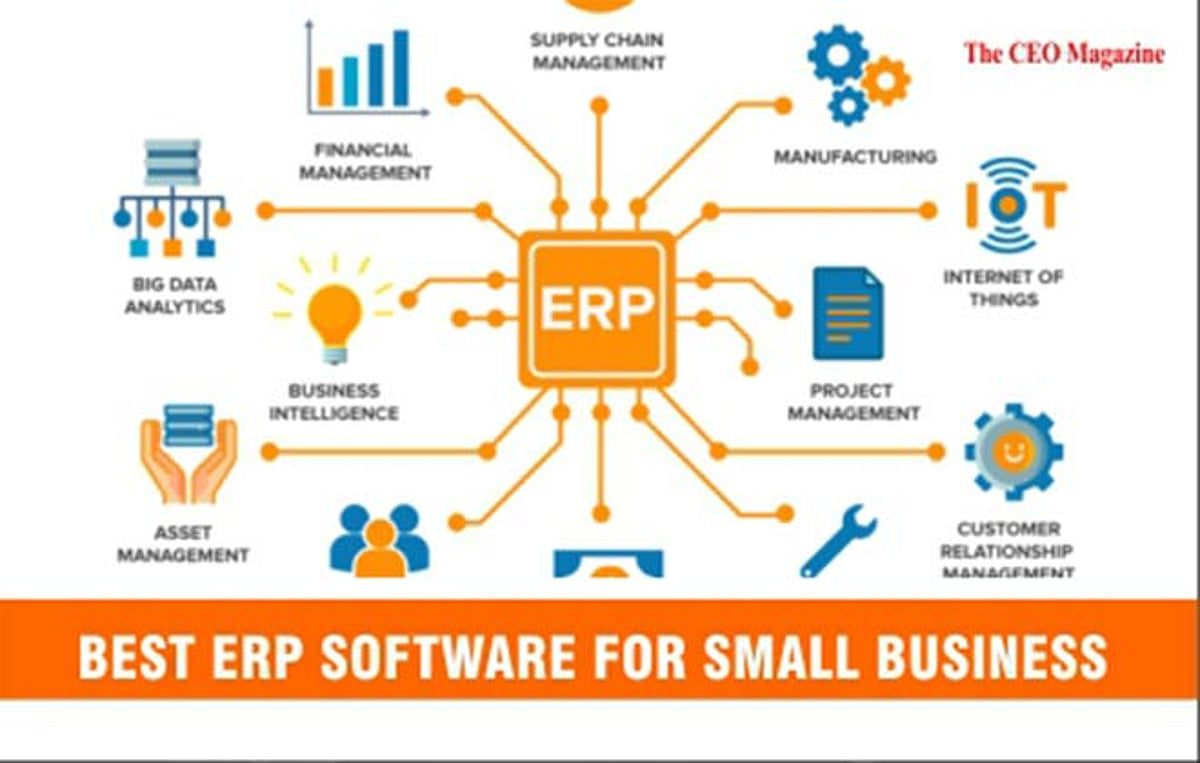The Benefits of Abis ERP System for Your Business
The Benefits of Abis ERP System for Your Business
Welcome to our article on the benefits of using Abis ERP system for your business! As technology continues to advance, more and more businesses are turning to ERP systems to streamline their operations and improve efficiency. Abis ERP system offers a wide range of features that can help your business manage everything from inventory and supply chain management to finance and human resources. By implementing this system, you can experience increased productivity, reduced costs, and improved decision-making processes. Read on to learn more about how Abis ERP system can benefit your business.
The Benefits of Abis ERP Software
Abis ERP software offers a wide range of benefits for businesses of all sizes. Whether you are a small startup or a large corporation, implementing Abis ERP can help streamline your operations, improve efficiency, and drive growth. Below are some of the key benefits of using Abis ERP software:
1. Enhanced Efficiency
One of the biggest advantages of Abis ERP software is the enhanced efficiency it brings to your business processes. By centralizing all of your data and operations in one integrated system, you can eliminate the need for manual data entry, reduce errors, and streamline communication between different departments. This means that tasks can be completed faster, decisions can be made more quickly, and overall productivity can be greatly improved.
With Abis ERP, you can automate repetitive tasks, track key metrics in real-time, and generate reports quickly and easily. This not only saves time and reduces the risk of errors, but it also allows your employees to focus on more strategic tasks that drive value for your business. In addition, with all of your data stored in one place, you can easily access the information you need to make informed decisions and respond quickly to changing market conditions.
2. Cost Savings
Another major benefit of Abis ERP software is the potential for cost savings. By streamlining processes, reducing errors, and improving overall efficiency, you can cut down on operational costs and increase your bottom line. In addition, by consolidating all of your data in one system, you can eliminate the need for multiple software solutions, which can result in significant savings on software licensing and maintenance fees.
Furthermore, Abis ERP software can help you optimize your inventory management, reduce excess inventory levels, and avoid stockouts, which can lead to significant cost savings. By having real-time visibility into your inventory levels and demand forecasts, you can ensure that you have the right amount of stock on hand at all times, and avoid tying up capital in excess inventory.
3. Scalability
One of the key advantages of Abis ERP software is its scalability. Whether you are a small business looking to expand or a large corporation with complex operations, Abis ERP can grow with your business and adapt to your changing needs. As your business grows, you can easily add new modules and functionalities to your system, without the need for a complete overhaul.
This scalability also means that you can easily integrate Abis ERP with other systems and third-party applications, allowing you to create a customized solution that meets your specific requirements. Whether you need to integrate with your e-commerce platform, CRM system, or supply chain management software, Abis ERP can provide seamless integration and ensure that all of your systems work together effectively.
In conclusion, Abis ERP software offers a wide range of benefits for businesses, including enhanced efficiency, cost savings, and scalability. By implementing Abis ERP, you can streamline your operations, improve productivity, and drive growth for your business. Whether you are a small startup or a large corporation, Abis ERP can help you achieve your business goals and stay competitive in today’s fast-paced market.
Implementation Process of Abis ERP
Implementing a new enterprise resource planning (ERP) system can be a daunting task for any organization. However, with the right approach and proper guidance, the implementation process of Abis ERP can be smooth and successful.
The implementation process of Abis ERP typically involves several key stages that are crucial for the system to be successfully integrated into the organization. These stages include planning, customization, testing, training, and finally, going live with the new system.
1. Planning: The first stage of the implementation process involves thorough planning and preparation. This includes defining the goals and objectives of the ERP system, identifying the scope of the project, and establishing a timeline for implementation. A project manager is usually assigned to oversee the implementation process and ensure that all tasks are completed on time and within budget.
2. Customization: One of the most important stages of the implementation process is customization. Abis ERP is a highly customizable system that can be tailored to meet the specific needs of each organization. During this stage, the ERP system is configured to align with the organization’s business processes and workflows. This may involve creating custom fields, modules, or reports to ensure that the system is fully optimized for the organization’s operations.
Customization also includes data migration, where existing data from legacy systems or spreadsheets is transferred to the new ERP system. This is a critical step that requires careful planning and execution to ensure that data is migrated accurately and without errors.
3. Testing: Once the customization of the ERP system is complete, thorough testing is conducted to identify and fix any issues or bugs. This includes functional testing to ensure that the system performs as expected, as well as integration testing to verify that the ERP system interfaces correctly with other systems and software used by the organization.
4. Training: Training is a crucial stage of the implementation process, as it ensures that end users are equipped with the knowledge and skills to effectively use the new ERP system. Training sessions are conducted for employees at all levels of the organization, from management to frontline staff. This helps to ensure a smooth transition to the new system and minimizes disruption to daily operations.
5. Go-live: The final stage of the implementation process is going live with the new ERP system. This involves deploying the system across the organization and transitioning from the old system to the new one. A support team is usually available during the initial days of go-live to assist employees with any issues or questions that may arise.
In conclusion, the implementation process of Abis ERP requires careful planning, customization, testing, training, and a smooth transition to going live. By following these key stages and working closely with the implementation team, organizations can successfully integrate Abis ERP into their operations and realize the benefits of a modern and efficient ERP system.
Features and Capabilities of Abis ERP System
Abis ERP system is designed to streamline and automate business processes for companies of all sizes. With its user-friendly interface and customizable features, Abis ERP offers a comprehensive solution for managing various aspects of a business. Here are some of the key features and capabilities of Abis ERP system:
1. Manufacturing Management: Abis ERP system provides tools for managing the manufacturing process from production planning to inventory management. Users can schedule production orders, track work-in-progress, and monitor inventory levels in real-time. The system also offers features for maintaining bill of materials, managing work centers, and tracking production costs.
2. Financial Management: Abis ERP system comes equipped with a suite of financial management tools to help businesses maintain accurate and up-to-date financial records. Users can generate financial reports, track expenses, manage accounts payable and receivable, and conduct financial analysis. The system also supports multi-currency and multi-company functionalities for businesses operating in multiple locations.
3. Supply Chain Management: One of the standout features of Abis ERP system is its robust supply chain management capabilities. Users can streamline the procurement process by automating purchase orders, vendor management, and inventory control. The system also offers tools for demand forecasting, supplier performance analysis, and logistics management. With Abis ERP, businesses can optimize their supply chain operations to reduce costs and improve efficiency.
4. Customer Relationship Management (CRM): Abis ERP system includes CRM functionalities to help businesses manage customer relationships effectively. Users can track customer interactions, manage sales pipelines, and create targeted marketing campaigns. The system also offers tools for customer support, lead management, and sales forecasting. By integrating CRM into their ERP system, businesses can ensure better customer satisfaction and retention.
5. Human Resources Management: Abis ERP system provides modules for managing human resources, including employee data, payroll, benefits administration, and performance evaluations. Users can track employee attendance, manage training programs, and automate HR processes. The system also supports compliance with labor laws and regulations to ensure a well-managed workforce.
6. Business Intelligence and Reporting: Abis ERP system offers robust business intelligence and reporting tools to help businesses make informed decisions. Users can generate customized reports, dashboards, and analytics to gain insights into their operations. The system also supports data visualization and predictive analytics to identify trends and opportunities for improvement.
Overall, Abis ERP system is a comprehensive solution for businesses looking to streamline their operations, improve efficiency, and drive growth. With its range of features and capabilities, Abis ERP can help businesses achieve their strategic goals and stay competitive in today’s fast-paced market.
How Abis ERP can Improve Business Efficiency
Abis ERP is a powerful tool that can streamline processes, increase productivity, and enhance overall business efficiency. Here are some ways in which Abis ERP can help improve efficiency in your organization:
1. Streamlining Processes
One of the key benefits of implementing Abis ERP is the ability to streamline processes within your organization. By centralizing data and automating tasks, Abis ERP can eliminate manual processes that are prone to errors and inefficiencies. This not only saves time but also ensures that tasks are completed accurately and consistently, leading to improved overall efficiency.
2. Real-time Data Access
Another way in which Abis ERP can improve business efficiency is by providing real-time access to critical data. With Abis ERP, all departments within your organization can access up-to-date information on inventory levels, sales data, customer information, and more. This enables quick decision-making and allows for better coordination between departments, leading to improved efficiency and productivity.
3. Enhanced Communication and Collaboration
Abis ERP also facilitates enhanced communication and collaboration within your organization. With centralized data and communication tools, employees can easily share information, collaborate on projects, and communicate effectively with colleagues. This leads to better coordination, faster problem-solving, and improved efficiency across the organization.
4. Customizable Reporting and Analytics
One of the key features of Abis ERP is its customizable reporting and analytics capabilities. With Abis ERP, you can create personalized reports and dashboards that provide insights into various aspects of your business, such as sales performance, inventory levels, and financial data. By having access to this data in real-time, you can make informed decisions that drive efficiency and improve business outcomes. Additionally, Abis ERP can automate the generation of reports, saving time and allowing employees to focus on more strategic tasks.
Furthermore, Abis ERP’s analytics capabilities enable you to analyze trends, identify opportunities for improvement, and optimize processes within your organization. By leveraging these insights, you can make data-driven decisions that lead to increased efficiency and better overall business performance.
In conclusion, Abis ERP is a valuable tool that can significantly improve business efficiency by streamlining processes, providing real-time data access, enhancing communication and collaboration, and offering customizable reporting and analytics capabilities. By implementing Abis ERP in your organization, you can drive efficiency, increase productivity, and achieve better business outcomes.
Customization Options for Abis ERP Solutions
Abis ERP solutions are known for their flexibility and the ability to be customized based on the specific needs of a business. There are various customization options available that can help businesses tailor the ERP system to fit their unique processes and requirements. Let’s take a look at some of the key customization options offered by Abis ERP:
1. Customizable Dashboards: One of the key features of Abis ERP is the ability to create personalized dashboards that display the most relevant information to different users. Businesses can customize these dashboards based on roles, departments, or specific KPIs, ensuring that each user has access to the data they need most.
2. User-defined Fields: Another customization option available with Abis ERP is the ability to add user-defined fields to the system. This allows businesses to capture additional information that is specific to their operations and processes. By adding custom fields, businesses can track unique data points and improve reporting and analysis.
3. Workflow Customization: Abis ERP offers advanced workflow customization capabilities, allowing businesses to design and implement workflows that align with their specific business processes. Businesses can define rules, triggers, and approvals to automate workflows and streamline operations, saving time and reducing errors.
4. Integration Options: Abis ERP can be seamlessly integrated with other software applications, allowing businesses to connect their ERP system with other tools and systems they use. This integration capability enables businesses to centralize data, eliminate manual data entry, and improve overall efficiency.
5. Module Customization: One of the most powerful customization options offered by Abis ERP is the ability to customize individual modules within the system. Businesses can tailor each module to meet their specific requirements, adding or removing functionalities, fields, or processes to fit their unique needs.
Module customization in Abis ERP allows businesses to create a system that truly aligns with their operations, ensuring that they get the most out of their ERP investment. Whether businesses need to add new functionalities, modify existing processes, or streamline workflows, module customization offers the flexibility to adapt the system to changing business needs.
Overall, the customization options available for Abis ERP solutions provide businesses with the flexibility and control they need to tailor the system to their specific requirements. By utilizing these customization options, businesses can optimize their ERP system to support their unique processes, improve efficiency, and drive growth.







